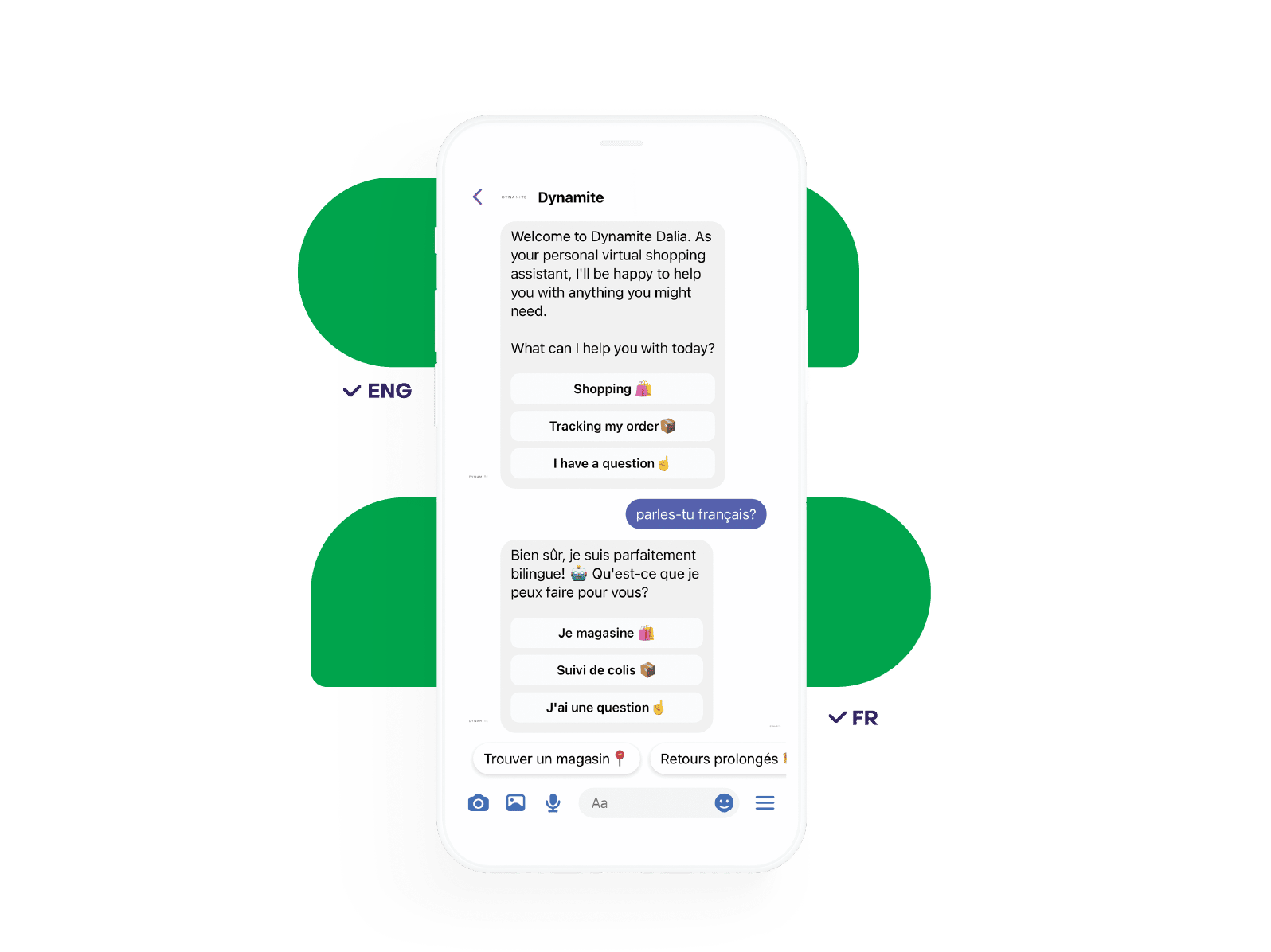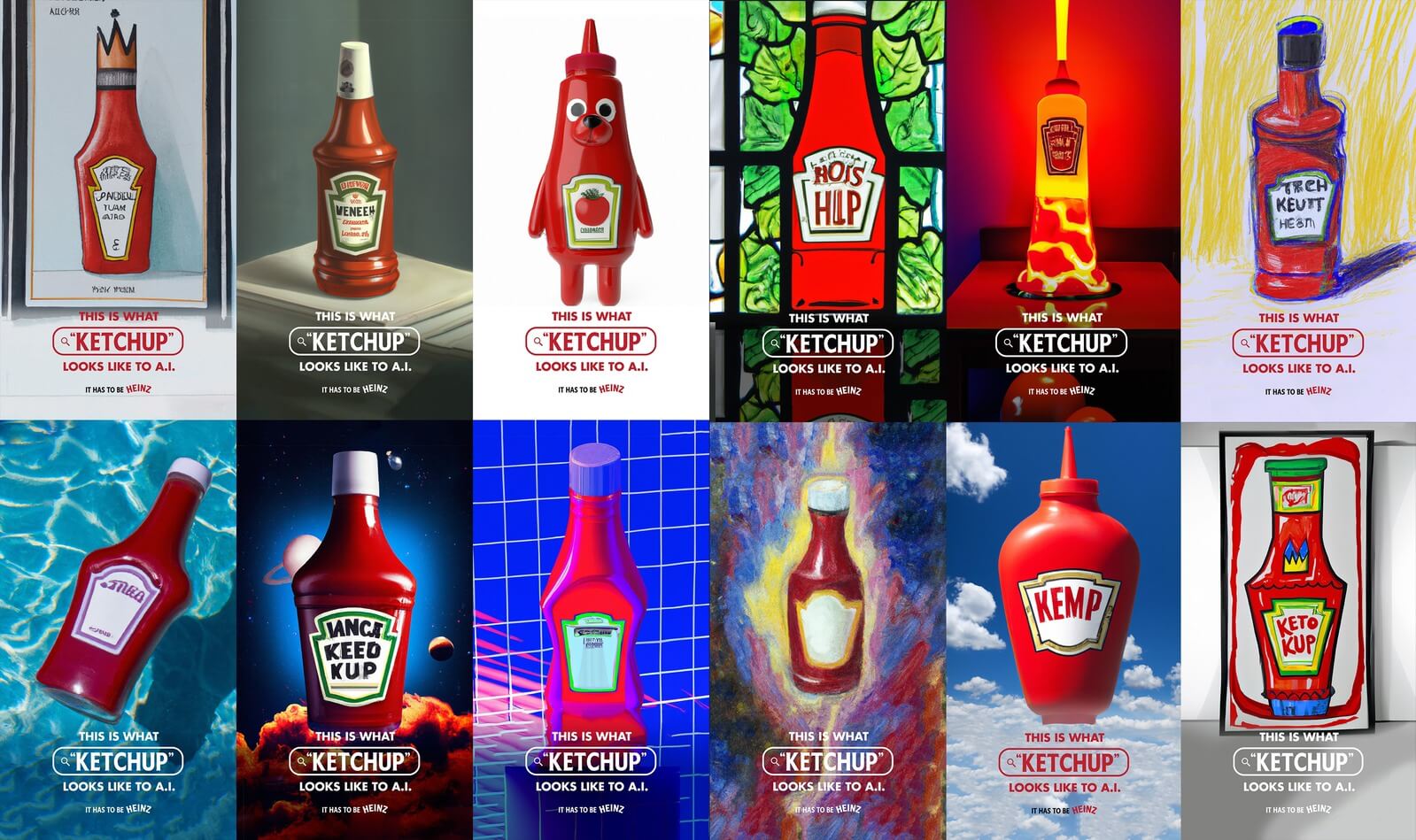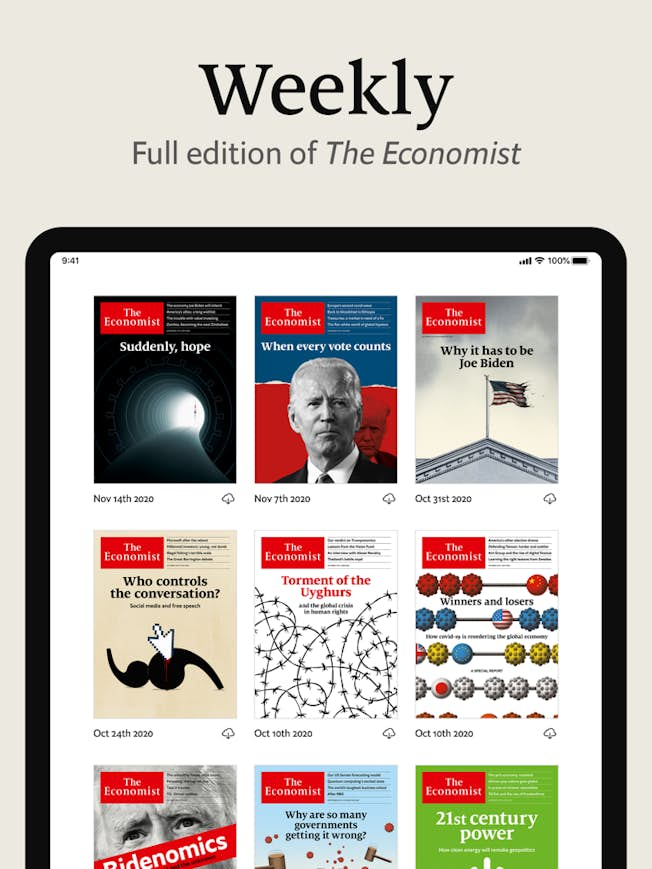How to Get Started With AI Digital Marketing in 2024
Written By
Published On
Read Time
Introduction

Many brands are now using Artificial Intelligence to connect with their target audience. AI can create simulated models and personalize the shopping experience with recommendations and predictions from machine learning. For instance, Amazon uses AI to suggest products based on your past purchases, the pages you've looked at, and your searches.
AI is becoming more common in digital marketing. Forbes reports that in 2018, 84 percent of marketing organizations were starting to use or expand their use of AI and machine learning, showing that marketers are quickly recognizing its value.
This article will look into what AI is, its growing importance in digital marketing strategies, and ways you can include it in your digital marketing plans.
Understanding the Role of AI in Digital Marketing
Artificial Intelligence (AI) has revolutionized AI in digital marketing by offering innovative tools for:
Content Creation: Enhancing the quality and relevance of marketing content.
Customer Inquiries: Streamlining customer service with rapid, intelligent responses.
Demand Forecasting: Predicting market trends and customer needs effectively.
By personalizing marketing efforts, optimizing content, and improving ROI, AI for digital marketing has become an indispensable tool. It's not just about automating tasks; AI aids in strategic decision-making and enhances creative processes, making it a vital component of modern digital marketing using AI.
Key aspects include:
Brainstorming: AI Marketing Tools help generate creative ideas and strategies.
Customer Experience: AI improves interactions and personalization, enhancing customer satisfaction.
The Evolution and Future of AI for Digital Marketing
The rapid analysis and interpretation capabilities of AI have made it a cornerstone for digital marketing with AI. As AI continues to evolve, its potential to revolutionize digital marketing grows, promising:
Enhanced Individualization: Tailoring marketing efforts to individual customer preferences.
Increased Productivity: Streamlining marketing processes for better efficiency.
Greater Impact: Achieving more significant results with sophisticated AI strategies.
The future of AI Marketing is bright, with advancements leading to more sophisticated and effective marketing strategies. From AI-powered personalization to predictive analytics, the evolution of AI in digital marketing is set to redefine the industry.
Why Embrace AI in Digital Marketing?
Embracing AI in digital marketing empowers companies by:
Automating Tasks: Saving time and resources by automating routine marketing tasks.
Refining Processes: Enhancing marketing strategies with AI-driven insights and analytics.
Improving Decision-Making: Offering advanced decision-making capabilities based on vast data analysis.
Digital marketing using AI is not just about enhancing advertising effectiveness; it also provides critical insights for competitive marketing strategies. As the role of AI expands beyond automation to strategic planning and intricate customer interactions, the synergy of AI digital marketing and human creativity is set to reshape the marketing realm in profound ways.
How AI is Revolutionizing Digital Marketing
AI in Digital Marketing has evolved from a fantastical notion to a game-changer for digital marketers. It's become the secret engine driving personalized ads, predictive analytics, customer experiences, and much more. AI uses capabilities such as data collection, natural language processing, machine learning, and data analysis to get customer insights and automate marketing tasks and decisions. The advantage of AI is that it helps gain insights into customer behaviors at speed by harvesting vast amounts of data, which can be used to respond to and tailor a customer’s needs depending on their actions and preferences.
AI-Powered Personalization and Customer Experience
AI has significantly enhanced digital marketing with AI through advanced data analysis and personalized recommendations. It analyzes large volumes of customer data and identifies behavioral patterns, similarities, and preferences among different groups, making AI digital marketing highly effective. For instance, Netflix uses customers’ viewing data, search history, ratings, and device usage times to provide personalized recommendations, improving the user experience and reducing churn rates. This level of personalization not only improves customer engagement and satisfaction but also boosts lead conversion.
AI-Powered Chatbots and AI customer service
AI-driven chatbots have revolutionized customer service in digital marketing using AI. They provide instant answers to simple queries and interact with brands, improving customer experience by personalizing content and messaging, anticipating customer needs, and streamlining purchasing. AI has a bigger role when it comes to customers, as it can direct queries or concerns to the right department or agent, enhancing the overall customer service experience.

Source: Heyday
Predictive Analytics and Consumer Behavior Prediction
Predictive analytics in AI for digital marketing uses advanced Machine Learning techniques to process data in real-time, offering invaluable customer insights, revealing patterns, and establishing data correlations. This helps marketers stay ahead of customer churn by thoroughly analyzing responses from surveys, gauging overall customer sentiment, and reviewing past interactions with clients. Businesses can identify common characteristics among customers who have ceased using their services and take proactive steps to improve marketing strategies and preserve user relationships.
AI-Generated Content and Creative Strategies
AI in Content Creation streamlines processes and helps save time. Tools like Speedybrand.io, Copy.ai and ChatGPT can automate the writing of product descriptions, social media copy, or emails. However, human review and editing are crucial to ensure the content aligns with the brand and adds a human touch. AI also helps optimize content by analyzing user interactions, identifying which elements generate the most clicks and conversions, and allowing marketers to refine their content strategies for maximum effectiveness.

Unleash your full potential with these top-rated ChatGPT Alternatives for exceptional writing results.
AI-Targeted Ads and Ad Optimization
AI's advanced data analysis capabilities help improve advertising campaigns through accurate ad targeting and optimization. AI algorithms can segment customers and offer personalized recommendations, targeting different audience segments with different ads to maximize performance. This ensures that messages reach the right people at the right time, improving ad performance and ROI. Continuous learning capabilities of AI allow marketers to refine targeting and optimize ad placements for maximum impact.

Source: Heinz
AI-Based Voice Search and User Interaction
Voice search optimization is becoming increasingly important in AI digital marketing. AI helps optimize content for voice search by focusing on natural language processing and long-tail keywords, including relevant metadata on images, and adapting content to match how people use voice search. This enhances user interaction and makes information more accessible, improving the overall user experience.
AI-Based Image/Video Recognition for Enhanced Engagement
AI can identify objects, people, and other elements in images and videos, offering automated tagging, improved search accuracy, visual content analysis, and creative inspiration. This helps businesses create more relevant and engaging visual content, ensuring that their digital marketing efforts resonate more effectively with their target audience.
AI-Powered Fraud Detection and Security Measures
AI algorithms detect anomalies, use predictive modeling, analyze text-based data, and monitor activity in real-time to help businesses identify and prevent fraud. This includes detecting patterns in click fraud, account hacking, and other malicious activities, ensuring that digital marketing campaigns are secure and trustworthy.
Interesting read: Source: LivePerson AI improves advertising campaigns through accurate targeting and real-time optimization. It identifies the most relevant audiences, adjusts campaigns on the fly, and continuously learns to refine targeting and ad placements, enhancing ad performance and ROI. AI streamlines content creation by automating writing tasks and optimizing content based on performance data. Tools like Jasper and ChatGPT help generate engaging content quickly, while AI analyzes user interactions to refine content strategies. AI automates and improves keyword research, content optimization, and predicts SEO trends. AI for SEO analyzes user behavior to optimize content and predict algorithm updates, enhancing the ranking and visibility of web pages. AI enhances UX by personalizing user experiences, analyzing user data to improve interactions, and adapting content and recommendations based on user behavior. It helps create intuitive and engaging user journeys, improving overall satisfaction. OptiMonk AI: Automates A/B testing and personalization for website conversions. Jasper: Assists with content generation and optimization. ChatGPT Plus (GPT-4): Offers advanced natural language processing for content creation and customer interaction. ElevenLabs: Creates voiceovers and audio content with text-to-speech technology. Opus Clip: Provides video creation and editing capabilities. SmartWriter: Enhances online marketing with personalized emails. Grammarly: Ensures clean, error-free content with real-time grammar and spelling checks. Understand AI's Role: Recognize that AI in digital marketing is not just about automation but also about enhancing creativity, efficiency, and strategic decision-making. Start with Automation: Begin by automating routine tasks such as campaign management, scheduling, and content generation. This will free up time for more strategic activities. Leverage Data Analysis: Use AI in social media to analyze customer data from social media, website analytics, and feedback. This will help in segmenting audiences and personalizing content and campaigns. Implement AI Chatbots: Deploy AI chatbots for lead generation, qualification, and customer service. They can handle open questions and provide contextually correct answers, enhancing user interactions. Personalize Customer Experience: Utilize AI tools like Landbot's Text-to-Bot feature to build chatbots that cater to specific customer needs and preferences, improving engagement and conversion rates. Optimize Content Creation: Employ AI for content creation and optimization. Tools like ChatGPT can suggest headlines, write outlines, or even generate entire articles, making the content creation process more efficient. Continuously Learn and Adapt: Embrace the continuous learning and improvement aspect of AI. Let the algorithms adapt based on new data and user interactions to refine strategies and enhance customer experiences over time. Netflix's Personalized Recommendations: Netflix employs AI to provide personalized content recommendations based on user preferences and behavior, significantly enhancing user experience and engagement. Sephora's AI Chatbot-Powered Shopping Service: Beauty brand Sephora uses AI to deliver tailored customer experiences, helping users select products and providing personalized advice. The Economist's AI-Driven Advertising: The Economist utilizes AI-driven programmatic advertising to target and influence specific reader segments, known as 'reluctant readers', improving engagement and conversion rates. Airbnb's Content Optimization: Airbnb uses AI to analyze vast amounts of user data to create tailored content for different audience segments and to help homeowners write appealing and accurate property descriptions. T-Mobile's Predictive Analytics: T-Mobile employs AI for predictive analytics to understand why customers leave and to reduce churn rates by analyzing customer data and behavior patterns. These real-world examples demonstrate how AI in digital marketing is not just a theoretical concept but a practical tool driving significant improvements in personalization, user experience, content creation, and AI Advertising effectiveness. Read more: Top 24 AI in Marketing Examples That Boosted Business Growth Boosts Productivity: AI automates various tasks, allowing marketers to focus on more complex and strategic activities. Drives Efficiency: AI handles repetitive tasks efficiently, such as data entry and campaign lead sorting, saving time and resources. Reveals Insights: AI provides data-driven insights, helping marketers develop more effective strategies and discover new opportunities. Increases ROI: By predicting buying behavior and personalizing content, AI improves user experience and conversion rates. Content Creation and Optimization: AI automates content generation, enabling the production of quality content at scale for various channels. Personalization at Scale: AI analyzes customer data to generate personalized recommendations, enhancing the customer experience. Predictive Analysis: AI forecasts consumer behavior and market trends, aiding in more accurate planning and decision-making. Task Automation: Routine tasks like data analysis, customer segmentation, and basic reporting are efficiently handled by AI. Bias: AI may reflect biases present in the data it's trained on, leading to skewed strategies and decisions. Inaccuracy: Data inaccuracies can result in faulty analyses and potentially costly mistakes. Ethical Concerns: Issues around data manipulation, consent, and hyper-targeted ads raise ethical questions. Data Sensitivity and Security: AI requires access to extensive datasets, which must be managed securely to protect sensitive information. Transparency: The rise of AI-generated content brings questions about transparency, plagiarism, authorship, and intellectual property. Data Management: Understanding how to collect, store, and utilize data effectively is crucial for leveraging AI in digital marketing. Data Analysis: The ability to interpret and draw insights from data helps in making informed decisions and refining strategies. Testing: Knowing how to test and validate AI models and AI Marketing Strategies ensures their effectiveness and accuracy. Content Personalization: Skills in customizing content based on AI-driven insights can significantly enhance user engagement and conversion rates. Marketing Automation: Understanding how to automate marketing processes using AI tools increases efficiency and effectiveness. Process Analysis and Improvement: Continuously analyzing and improving marketing processes based on AI feedback is key to staying competitive. Strategic Thinking: The ability to plan and strategize with AI in mind is essential for integrating technology into marketing efforts effectively. Innovation and Creativity: Embracing innovation and creativity is vital for leveraging AI in unique and effective ways. Agile Thinking: Being adaptable and responsive to the rapid changes in AI technology ensures that marketing strategies remain relevant and effective. By understanding and developing these skills, marketers can effectively navigate the world of AI in digital marketing, leveraging its benefits while mitigating its challenges to drive success in their digital marketing efforts. To thrive in this AI-driven digital marketing landscape, marketers must equip themselves with essential skills and knowledge. Understanding data management, analysis, and the ethical implications of AI are crucial. Moreover, embracing continuous learning and staying updated with the latest AI advancements will be key to leveraging AI effectively. The future of digital marketing with AI is bright and promising. As AI continues to evolve, it will offer even more sophisticated tools and insights, enabling marketers to create more personalized, engaging, and successful campaigns. AI is revolutionizing digital marketing in various ways, such as personalizing customer experiences, optimizing ad campaigns, predicting customer behavior, and generating content Many leading companies leverage AI, including Google, Facebook, Amazon, Netflix and Salesforce. AI is a powerful tool, but it won't replace human marketers entirely. The best strategy here is to combine AI's efficiency and insights with human expertise to achieve optimal results in digital marketing. Read more: Will AI Replace SEO?AI in Digital Advertising: Targeting and Optimization
AI in Content Marketing: Streamlining Content Creation
AI in SEO: Enhancing Search Engine Optimization

AI and User Experience (UX): Crafting Better User Journeys
Tools and Technologies for AI-Driven Digital Marketing

How to Use AI in Digital Marketing: A Step-by-Step Approach
Examples of AI in Digital Marketing: Real-World Success Stories

Navigating the Pros and Cons of AI in Digital Marketing
The Pros of AI in Digital Marketing: Benefits and Advantages
The Cons of AI in Digital Marketing: Limitations and Considerations
Essential Skills and Knowledge for AI-Driven Digital Marketing
Conclusion
FAQs
1. How is AI used in digital marketing?
2. Which digital marketing companies use AI?
3. Can AI replace digital marketers?